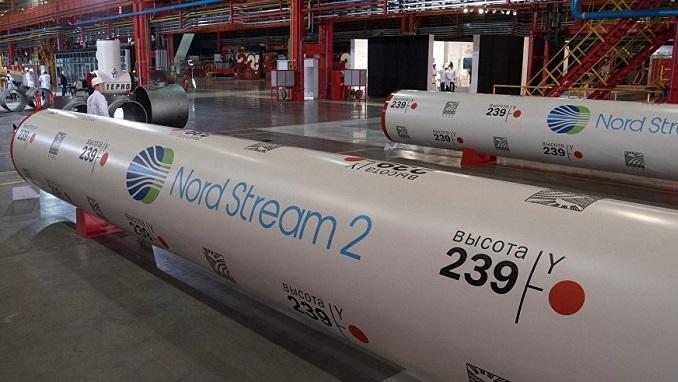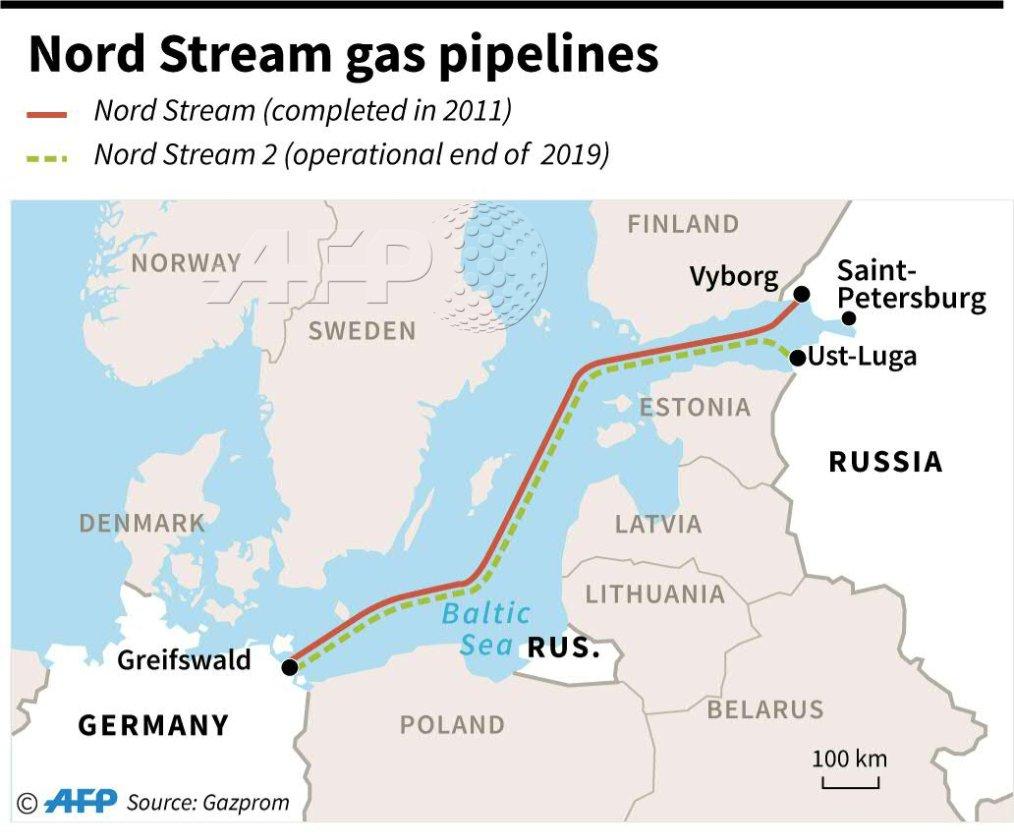Germany Slams Trump’s ‘Meddling’ In Europe’s Energy After Nord Stream 2 Sanctions Passed
Included in Wednesday’s just passed mammoth 2020 National Defense Authorization Act (NDAA) — which increases the Pentagon budget by $22 billion (to a whopping $738 billion) — were long-threatened sanctions on Russia’s Nord Stream 2 underwater natural gas pipeline.
In the House bill, expected to be approved by the Senate sometime next week before Trump signs it into law, are measures which specifically target companies assembling the pipeline, a last ditch US effort to block the controversial 760-mile project that would allow Russia to export natural gas directly to Germany, depriving Ukraine of badly needed gas transit fees along the current route for Russian supplies.

The $10.5 billion Nord Stream 2, which runs parallel to the existing Nord Stream pipeline, has been spearheaded by Gazprom and five European energy companies, and is reportedly nearing completion. It’s expected to double Russian gas shipments to the EU’s biggest economy Germany. Washington fears it will give Moscow significant geopolitical leverage over Europe while also punishing Ukraine.
Over the past months projected completion has been consistently named as “by year’s end”, hence the Congressional scramble to ‘act now’ on sanctions, but reports say it’s still months away from completion.
Regardless, Gazprom head Alexei Miller has for months said it’s “past the point of no return” and that nothing would derail it. “We are working from the idea that Nord Stream 2 will be realized strictly in accordance with the planned timetable,” he previously told shareholders.
Trump has long charged Germany with essentially giving “billions” of dollars to Russia. Earlier this year a France-led effort in the European Union attempted to halt the project, however, Germany came out on top.
And now Berlin is hitting back over the new sanctions effort, charging Washington with “interference” and meddling in European energy policy.
Angela Merkel’s top diplomat, Foreign Minister Heiko Maas, told Bloomberg:
“European energy policy must be decided in Europe, not the U.S.” And added, “We fundamentally reject outside intervention and sanctions with extraterritorial effect.”
Completion is still months away, though it was expected to be operational by end of 2019. No doubt US sanctions could complicate its completion further.
Germany has expected such punitive actions, which have bipartisan support in Congress. The measures additionally target executives of companies operating vessels laying the pipeline.
French electricity and gas firm Engie SA and Royal Dutch shell are among other major companies alongside Gazprom which are major players in the controversial project.
Tyler Durden
Fri, 12/13/2019 – 02:45
via ZeroHedge News https://ift.tt/38yH2Jo Tyler Durden
